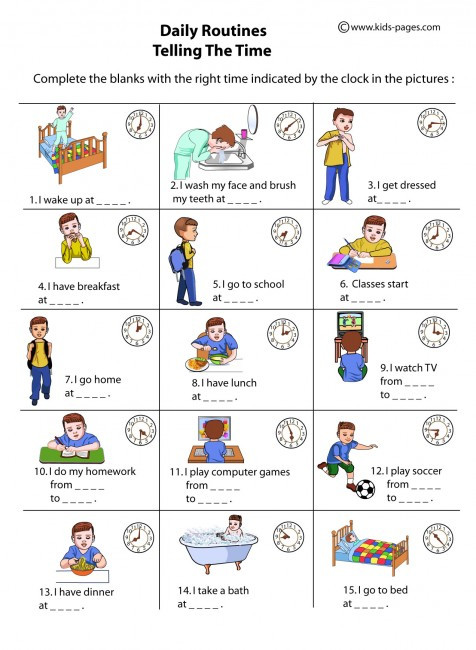How to fix a spoiled child
Ways to Discipline Ungrateful, Spoiled Children
Tanya J. Peterson
It can seem that there is no way to discipline ungrateful, spoiled children. Kids that act ungrateful or spoiled seem out of control and unteachable. Having a self-centered, demanding, unsatisfied child is exhausting and frustrating. There is hope. It’s possible to teach kids new attitudes and behaviors. Keep reading to learn how to discipline a spoiled, ungrateful child.
How to Discipline an Ungrateful, Spoiled Child: Know How They Got This Way
Spoiled kids believe that the world and everyone in it revolves around them. They feel that they have the right to have what they want when they want it, and the needs of others aren’t as important as their own. This sense of entitlement doesn’t develop overnight. It’s a process that happens over time and is born out of usually well-meaning parenting styles.
Use this checklist to see if any of these culprits underlying self-indulgent behavior fit your household:
- Giving your child too much, buying them things they want because you like to see them happy (plus you don’t want to make a scene at the store)
- Over-nurturing your child by protecting them from all things they find unpleasant—parents might do their child’s homework, allow them to skip doing anything they don’t like, prepare special meals, and more
- Providing too little structure, routines, limits, and expectations
- Giving in to kids without making them do things to earn their privileges
The purpose of knowing how spoiled children develop is not to assess blame; again, most parents who use the above practices are well-meaning. Identifying contributing factors allows you to begin eliminating them.
How to Discipline a Child Who Is Spoiled or Ungrateful
Disciplining your child when they are accustomed to having everything go their way requires patience and consistency. When you begin to discipline, your child will very likely act out more than they already do if they don’t get their way. That’s okay. It’s part of the discipline, or teaching, process. Your child has a lot to un-learn and re-learn.
Use these discipline strategies to help your kids change their behavior to a more effective approach to their life:
- Set simple and clear limits, rules, and consequences. Make sure your child knows what they are.
- Be consistent. Always follow through with your established consequences so your child learns that you’re serious.
- Encourage and reinforce their positive behavior; catch them behaving in a non-entitled way.
- Increase their awareness of their ungrateful behavior or words by gently pointing out what you observed.
 Kids need to learn what it means to act spoiled or ungrateful so they can replace negative behaviors with different ones.
Kids need to learn what it means to act spoiled or ungrateful so they can replace negative behaviors with different ones. - Avoid shaming or name-calling. Telling your child they’re a spoiled brat will only make them identify with the label and try to live up to what you think of them.
- Separate your child from their behavior. They are acting spoiled. They aren’t spoiled at their core.
Throughout the process, stay calm. Losing your temper is like having a tantrum and makes you seem spoiled to your child. Discipline is about helping your child learn better behavior, so model calm, rational conduct. When you’re calm, your child is much more likely to cooperate as you begin the next step in disciplining an ungrateful child.
To Discipline Ungrateful, Spoiled Children, Show Them New Behaviors
As you set and enforce limits and your child’s poor behavior begins to lessen, you can begin to replace spoiled behavior with something more desirable. This is done with both perspective and action.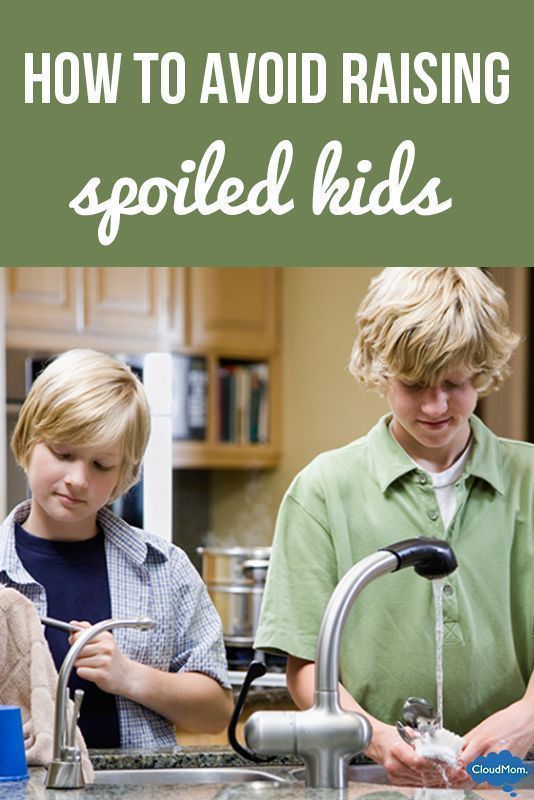
Even more important than reducing what you don’t want is teaching grateful, unselfish behavior. Help them shift their perspective from what they think they deserve to what they can give or do for others.
Do things with your child that teach kindness and positive action. Together, help a housebound neighbor. Make a meal together for someone who could use some help. You and your child might volunteer your time and talents somewhere in your community. Also, talk about kindness with your child. Ask them about the kind things they do at school.
Fostering gratitude reverses ungrateful behavior and outlook. At dinner each night, have everyone share one thing they’re grateful for that day. Have a family gratitude “wall,” a marker board set up for family members to write about or draw things for which they’re grateful.
Teach empathy. Kids don’t instinctively know how their words and attitude affect others. Talk about how others might have felt in response to your child’s unkind words or selfish behavior.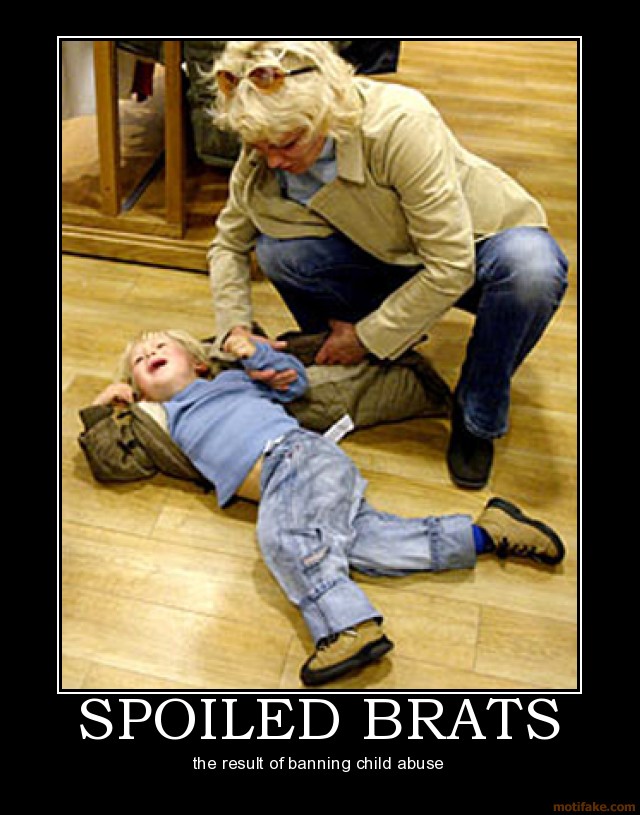 You can even use characters in TV shows or books as empathy-teaching tools.
You can even use characters in TV shows or books as empathy-teaching tools.
While there are no quick fixes, there are ways to discipline ungrateful, spoiled children. Be calm, consistent, and view the process not as punishing away bad behavior but as teaching positive behavior that builds character.
article references
APA Reference
Peterson, T. (2022, January 11). Ways to Discipline Ungrateful, Spoiled Children, HealthyPlace. Retrieved on 2022, December 13 from https://www.healthyplace.com/parenting/discipline/ways-to-discipline-ungrateful-spoiled-children
Last Updated: January 16, 2022
Medically reviewed by Harry Croft, MD
More Info
Helping Your ADHD Child Succeed in School
Where Can I Get Quick Parenting Help?
Parenting a Teenager Who is Living with Mental Illness
Parenting with a Mental Illness: Effects on Child Development
Are Co-Parenting Classes Helpful for Divorced Parents?
A Parent's Job as a Role Model
‘Good Enough Parenting’ Has Its Time and Place
Spoiled Child? Learn exactly how to unspoil a child (starting today!)
Do you feel like you are noticing the characteristics of a spoiled child? Do you feel like your sweet child turned into an ungrateful child? Have you ever wondered how to unspoil a child… or how to unspoil your child?
I know that this can be hard because you don’t even realize that it is happening and then BAM… you hear the disrespect in your child’s voice and realize that you need to STOP doing that for your child!
When you begin to see that your children are displaying the same spoiled behavior as ungrateful children, you know that it’s time to teach your kids how to be grateful again.
Before we begin, I do want to point out that there is no reason to feel guilty. You are here because you are ready to help your spoiled child get back to that kind, loving child that you know they are inside. To be honest, it probably started because you do love your child and you thought you were helping.
Whatever the case… we’re going to get back to the place that makes you BOTH happy & grateful.
With this post in mind, I asked many of my readers what they had done when they needed to help a spoiled child become more grateful and unspoiled. I know that this can be quite a challenge for many parents, so I hope that this gives you just the boost of confidence and knowledge that you need to know how to unspoil a child!
We don’t intend to have spoiled kids – it’s just the day & age that lends itself so easily to that, you know? According to a recent study, Dr. Bromfield reports that:
“A vast majority of parents — 94 percent, according to a recent survey — judge their children to be spoiled. ”
”It is hard when your child acts spoiled, because even though YOU may know that your child is loving and kind… it isn’t showing up that way. Others may begin to think of that child as a “spoiled brat” or a “spoiled child.”
They may try to offer advice on how to set limits or how to handle temper tantrums. Some may even offer parenting advice like “Spare the rod, spoil the child.” The phrase ‘spare the rod’ comes from Proverbs 13:24 – “Whoever spares the rod hates his son, but he who loves him is diligent to discipline him.” (there is more on this at Proverbs 22:15). However… I do not spank, and I do not agree with it.
I have always disagreed with the entire “spare the rod” concept because I just can’t see any benefit of physical discipline, corporal punishment, or anything to that nature.
I spent a semester in college studying the effects of spanking, among other things, and there is no evidence on the benefits of this, especially the long term.
I also try not to yell. I have always wanted our children to be respectful because it is the right thing to do. I want them to be kind because they respect others.
I have always wanted our children to be respectful because it is the right thing to do. I want them to be kind because they respect others.
I want them to be generous because it brings them joy to bring others joy. I do not want them to do these things out of fear of being caught by their parents or teachers. If that were the case, I would worry about how they would act when we were not around. When I know that they are intrinsically motivated, I know that they will hold onto these values & beliefs.
You know your child best, so please remember that.
If a child is acting spoiled, it is most likely the parent’s doing… not the child’s doing.Children can’t spoil themselves. It happens because of a child learning what to expect. Likewise, they most likely won’t have the tools to unspoil themselves. It is up to us, as parents, to help them.
Remember that while spoiling your child CAN happen by giving them too much without any appreciation, it can also just be that your child is not respectful of others or things.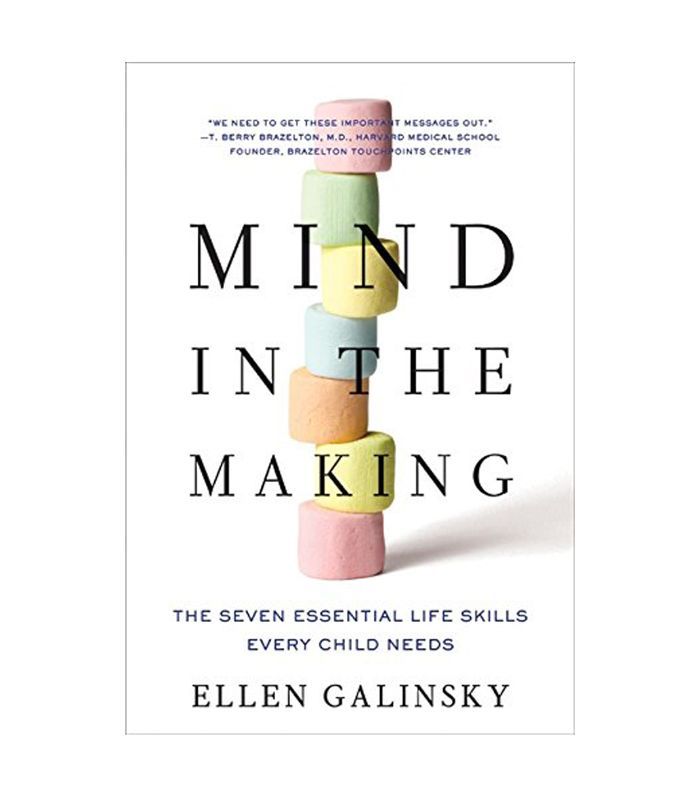
It can also happen by accident…
We see a great deal on something that we think they’ll like. Since we love to see our children smile, we get it for them. The next time that we are out, we do the same thing. Soon, it’s become expected, instead of appreciated. Without even realizing that we are turning them into ungrateful people – we’ve done it.
That’s ok – because today is the day that we start the UNSPOILING! Spoiled children can be taught to be grateful, so they turn out to be responsible, respectful adults.
Before we move on… give yourself a pat on the back for taking this step! This is the hardest part… admitting that your child is spoiled or disrespectful.
10 Tips to Teach You How to Unspoil a ChildBefore we begin, let me say that with everything, consistency is key in helping your spoiled child to be unspoiled. It’s worth repeating…
Consistency is key.If you can stick to your rules, you will see much quicker results.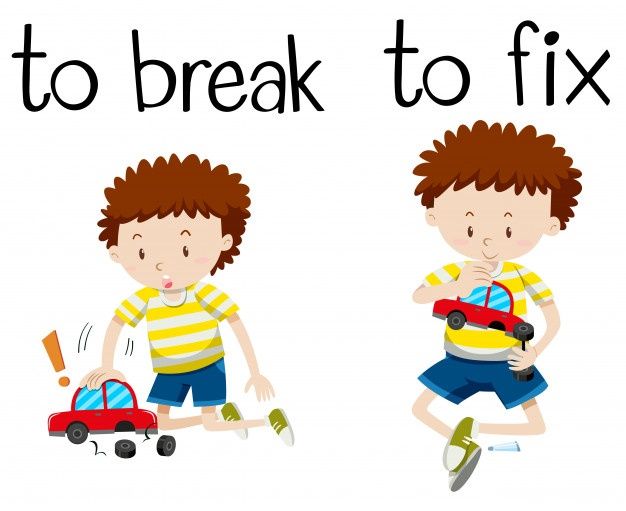 This is the key to success, in my opinion. I saw this when I was a teacher, I see it as a play therapist and I see it as a mom.
This is the key to success, in my opinion. I saw this when I was a teacher, I see it as a play therapist and I see it as a mom.
Consistency is the key.
Every time that they ___, they get ___.
Example: With these swap chores for screentime cards… if they do chores, they earn screentime minutes.
When you ____, then you ____. (When you have done your chores, then you can use your phone. )
You are essentially giving your child a choice. You are not yelling. You are not upset. You are simply letting your child choose
- If they want to play, they need to finish cleaning. “When you finish cleaning, then you can play.”
- If your child wants to have a snack, he has to eat his vegetables. “When you finish your vegetables, then you can have a snack.”
- If she wants to go to the park, she needs to have her bed made. “When you make your bed, then you can go to the park.
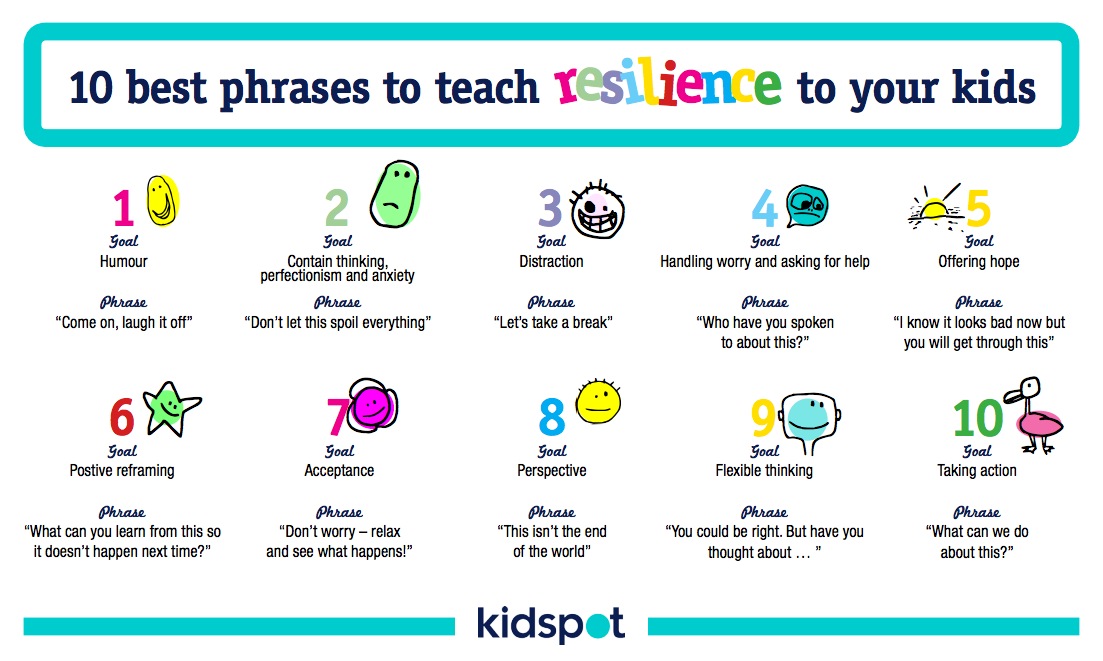 ”
” - If they want to play a game, they have to finish their homework. “When you have finished your work, then you can play your video games.”
- When you have filled up your reward jar (for being kind), then we can go out for ice cream.
Even though they only have a limited number of choices, it is still a choice. You are giving your child the power and they will decide how they want to proceed.
Set expectations.
Give your child a run-down of the day, if possible. Let them know what to expect.
Example: “We will be going to the store today. You will not be buying anything. If you ask for something while we are there, I will be taking away electronics for the remainder of the day.
I will have to do this because I am telling you RIGHT NOW that we are going to the store for groceries and nothing else. Do you understand?”
You are merely telling them ahead of time and asking them to respect what you say.
Your child might ask you for something, or you might purchase un-needed stuff because they are. .
.
- cute
- on-sale (this is what usually gets me!)
- fun
- educational.
However… your child does not need them.
While it is nice to buy them things and you feel like you are helping, you need to take a step back and ask yourself if you are teaching them that they can have whatever they want before you buy it, or ask yourself if they really do need it.
Plus, when you aren’t continually buying them things, they will appreciate it more when they do receive a gift.
Remember – you can say NO to things. In an article in the New Yorker, I read that “[French Parents] view learning to cope with ‘no’ as a crucial step in a child’s evolution. It forces them to understand that there are other people in the world, with needs as powerful as their own.” ~ Druckerman
Does your child take care of their things? Do they respect their things?- Does your child think that you will replace broken toys right away?
- Do they just throw it into a toy box? Or are they carefully playing with it and storing their toys properly?
- If you took all of their toys away, would they cry because you did it?
- Or would they cry because they actually missed their toys?
- In other words- would it just be the thought of having no toys that bother them, or do they really miss their toys? I have found that most kids don’t even miss the toys being gone.

The value of hard work should never be overlooked. If your child wants something, tell them how much it costs and let them work hard to make that money. How wonderful they will feel when they can accomplish that on their own! They are so proud!
Have your child keep a list of things that he wants and how much it costs.If your child wants a new scooter, he has a few options:
- Ask for it for his birthday
- Put it on his Christmas list and hope that he gets it.
- Save up his own money to buy it (you could even match his money. If he puts $5 into his piggy bank, you add $5, too.)
Teach your child to give.
A while back, I heard that you should get rid of one thing for every new thing that comes into the home. If your child gets a new toy, have them donate one to someone else (not a broken one or less-valuable one, but one that someone else will love. )
)
First – you don’t need it all.
Second – your child will be excited when he/she goes somewhere (church nursery or gym nursery or to a friend’s house) where there are new toys.
You don’t need it at your house, too. Less is more. Your child may become overwhelmed with too many toys, just like we become overwhelmed with too much stuff.
TIME matters more.
Spend more time doing things with your child. You don’t need to “buy” things for them. Just spend time with them. You can grab my free calendar & my FREE e-mail series on spending one-on-one time with your child:
If they act entitled or ungrateful, talk to them. Sit them down and explain it to them. THEN follow through with a consequence. Never use empty threats.
I learned once that I would never use a huge threat like “If you keep acting this way, we aren’t going to Disney this summer!” because I would never follow through with that.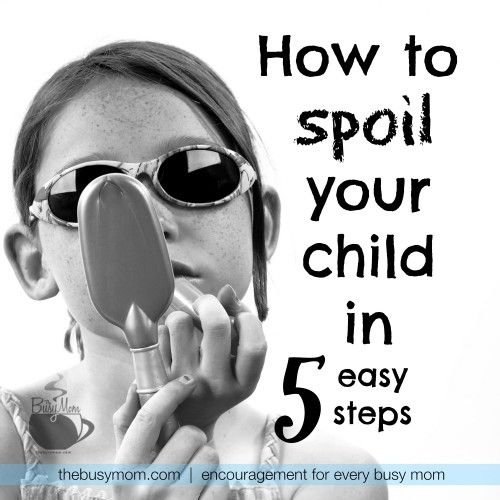
Use the KISS method- Keep It Simple, Silly.
No TV for today.
No snacks today.
No playing with your friends today.
You get two extra chores today, etc.
It is really about you. Your child is mimicking what you have taught them. Be a great example.
Bonus Tip for How to Unspoil a Child:This system below has worked WONDERS for getting our kids to help out (without any nagging or yelling).
If you want to start chores with your kids, but do not want to have to deal with a chore chart, try these Chore Cards. We have them & they are easy, and they are “normal” chores, like sweep the floors, dust, clean up the living room, etc… It makes it easy to say,
“Ok, everyone – go grab two chore cards, and then you are done, and you can go play.”
I even use them for screen time- we save up the minutes (write it on a sheet of paper), then when the kids want to play on their iPad or watch a show, they have to use the minutes that they’ve saved.
You can find the Swap Chores for Screentime Chore Cards here.
Good luck! You’ve got this one in the bag!
Are you looking for more parenting tips?Check out the articles listed below…
Scary Truth about what’s Hurting Our Kids
Is your child whining? Try this!
How to stop yelling… and get your kids to listen!
Why Our Younger Kids are in Bed by 7:00
Stop doing that for your kids (it’s doing more harm than good)
Why Children are lonelier than generations before them…
© YourModernFamily.com. Content and photographs are copyright protected. Sharing of this article is encouraged and appreciated, copying and/or pasting articles to any social media is strictly prohibited.
If a child is spoiled: what to do?
Home
\
Olga Garanina
\
If a child is spoiled: what to do?
\
Psychology
All articles in the category Psychology - this is exactly what many parents think and try to please their charming children in everything. Gorgeous gifts for all holidays, small presents for no reason, fun weekends - all this, of course, is very cool, but often leads to an unpleasant consequence - a spoiled child. What to do if you notice a baby's consumer attitude towards family and life? Naturally, re-educate - at preschool age, you can quickly change the values of the child.
Gorgeous gifts for all holidays, small presents for no reason, fun weekends - all this, of course, is very cool, but often leads to an unpleasant consequence - a spoiled child. What to do if you notice a baby's consumer attitude towards family and life? Naturally, re-educate - at preschool age, you can quickly change the values of the child.
Causes of being spoiled
It seems to adults that a child becomes spoiled “unexpectedly”, but such behavior was clearly preceded by actions on the part of relatives. By establishing specific reasons, you can quickly get rid of the problem and in the future not provoke the child to display a consumer attitude. Here are the main problems of upbringing that lead to spoiled children:
- Excessive guardianship. The most common problem of parents and close relatives is the desire to make the life of the baby easier and more carefree. Adults respond to any request of the child with instant consent. Any movement of the baby is controlled by the sensitive gaze of worried relatives.
 If a child does not want to put away toys because he wants to sleep, his parents will gladly do it for him. If he refuses porridge, his grandmother immediately prepares pancakes for him. The kid very quickly gets used to such an attitude and then freely uses it, and often without even realizing that it is bad.
If a child does not want to put away toys because he wants to sleep, his parents will gladly do it for him. If he refuses porridge, his grandmother immediately prepares pancakes for him. The kid very quickly gets used to such an attitude and then freely uses it, and often without even realizing that it is bad. - Coaxing a child, compensating for insufficient attention. In the modern world, unfortunately, adults do not always have time to fully devote it to the baby. Instead of a family outing, parents simply buy their child a new video game or favorite ice cream. The kid himself feels a lack of parental warmth, but he gladly accepts gifts, and at senior preschool and school age he even begins to demand them.
- Different methods of education. Often, other relatives take part in the upbringing of children, including aunts and uncles, grandparents. At the same time, everyone has formed their own opinion regarding the methods of the already difficult educational process. Conflicts between family members lead to the fact that the child begins to "poach" to their side.
 Again, gifts, indulgences, etc. are used.
Again, gifts, indulgences, etc. are used.
You need to understand that at the age of 3-6 years old, children form their attitude towards themselves, others and life in general. During this period, it is important to lay the right life values and the foundations of social behavior. Spoiled children can face a lot of problems at school, so you need to take re-education measures as soon as possible.
How to re-educate a spoiled child
No child psychologist will tell you a clear and specific methodology on what to do if your child is spoiled. There is simply no single rule - the problem must be solved individually and comprehensively. In some cases, it is enough just to reduce the number of gifts, in others it is necessary to completely change the education system. Still, a few tips for parents will be useful:
- Don't be afraid to say no. Yes, the child will be unhappy with your unwillingness to comply with his request. He might even throw a temper tantrum.
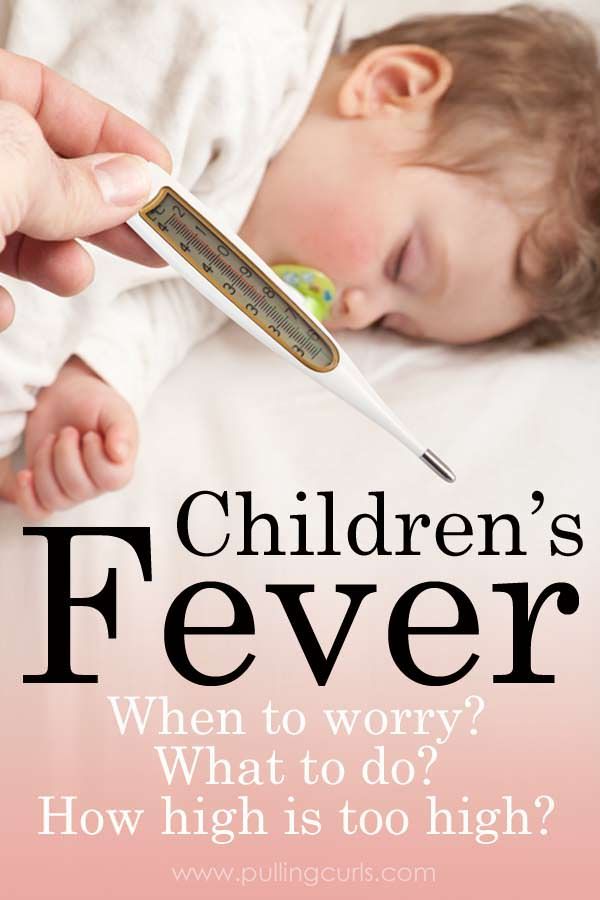 But you can’t be afraid of such a reaction - you just need to endure this moment. The kid will understand that not everything can be received, and over time he will respond more calmly to refusals. This method is also useful in cases where you want to cultivate industriousness and purposefulness.
But you can’t be afraid of such a reaction - you just need to endure this moment. The kid will understand that not everything can be received, and over time he will respond more calmly to refusals. This method is also useful in cases where you want to cultivate industriousness and purposefulness. - Define what is allowed. The behavior of the child must be limited. This is not about rigid limits that completely violate the freedom and desires of a preschooler, but about reasonable restrictions for the purpose of education.
- Stick to your parenting tactics. This rule applies to all family members. If today you refused to buy a toy for your baby, and tomorrow your beloved grandmother still bought the desired gift, the child will not learn the lesson.
- Encourage your child, but don't flatter or give gifts. It is necessary to properly praise the child - in accordance with the scale of the work performed by him. For example, if a preschooler put away toys, you should not thank him with a piece of cake.
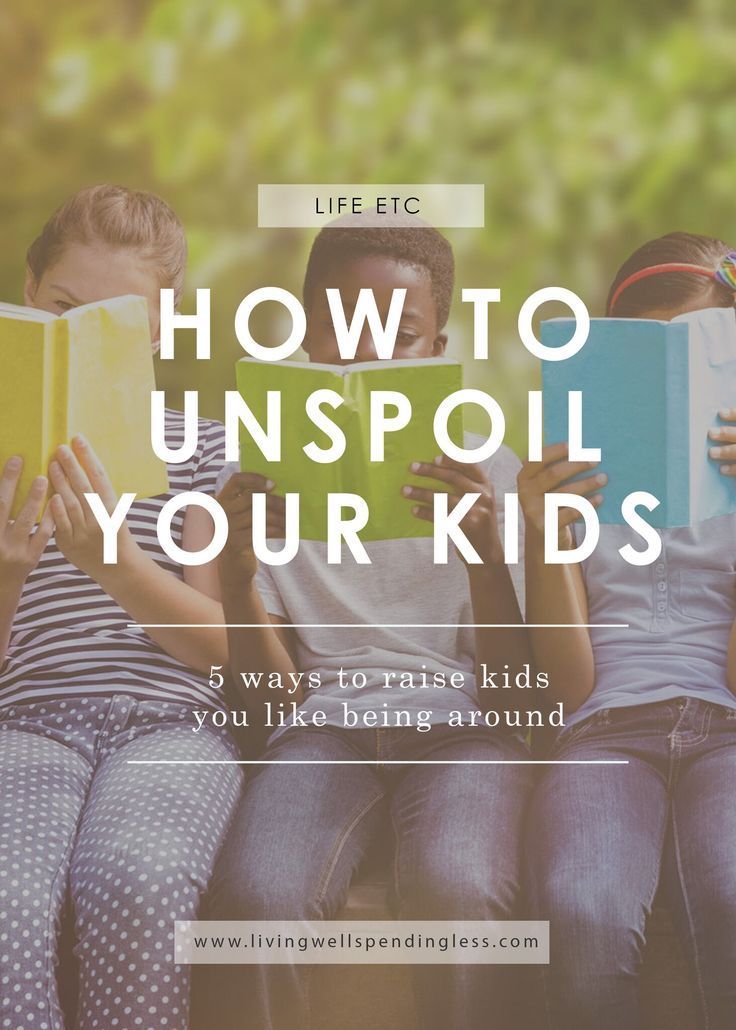 The kid must understand that there are duties that do not require material incentives. Sincere words of praise will suffice.
The kid must understand that there are duties that do not require material incentives. Sincere words of praise will suffice. - Enter the day mode. A clear routine will teach the child discipline, which, as a rule, is sorely lacking in spoiled children.
Regardless of the decision you make on how to re-educate a spoiled child, be sure to be patient. This process takes more than one week and requires iron endurance from all family members. And no matter how difficult the path of re-education may be, the end result is worth it - your child will respect you and your work.
Did your child go through a period of spoilage? Did you manage to re-educate the baby? Share your experience in the comments - it will be useful to other parents.
Products from Rastishka
Other articles in the category Psychology
School after school: let's talk about extension
"They don't love me": why children may feel left out in the family
"Don't cry, take a candy!", or Why sweets should not become a consolation
"Breathe through your nose!", or Respiratory hygiene during the heating season
{{name}}
This site uses cookies to collect information about you.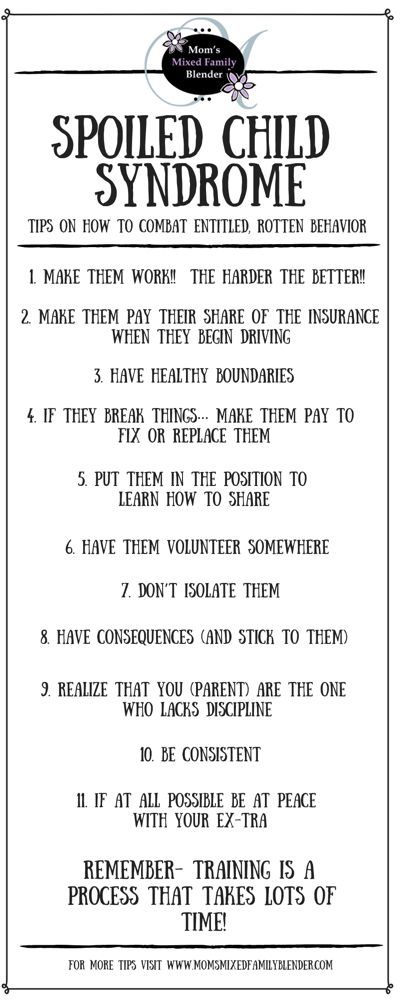 This is necessary to improve the site. By continuing to use the site, you agree to the use of cookies and their provision to third-party partners. You need to accept this or leave the site.
This is necessary to improve the site. By continuing to use the site, you agree to the use of cookies and their provision to third-party partners. You need to accept this or leave the site.
Practical tips for re-educating a spoiled child
There is an opinion in some families that a child should be brought up in the most comfortable and happy conditions, which means that he should not experience pain, bitterness, anger and other negative emotions. Protecting their child from life's negativity, parents, without noticing it, spoil their child greatly.
Subsequently, this leads to a spoiled relationship between parents and the child, because the latter begins to feel like the head of the family, which means that he will achieve what he wants by any means (for example, screams, tears, fights, etc.).
This kind of behavior is not to be tolerated, so it is important to take some steps to help calm the child down and show him/her a place in the family. This article provides several steps to help parents re-educate their spoiled child.
The first such step is the introduction of a clear daily routine. Of course, you won’t be able to follow the regime right away, so you need to introduce it gradually. So, for example, you can start with the fact that every day at a certain time the child will clean up his toys. At first he will “resist”, but over time it will become a habit for him and it will be much easier for him to comply with the regimen.
You can also entrust your child with some household chores. In this case, the child will develop respect for other people's work, because usually it is disrespect that is a frequent cause of conflicts with a spoiled child.
Of course, at first, parents will redo the household chores entrusted to the child, because it is unlikely that he will immediately begin to perform it correctly. But gradually the child will learn this lesson, and in other household chores he will offer his help.
An important thing in the re-education of a spoiled child is nutrition.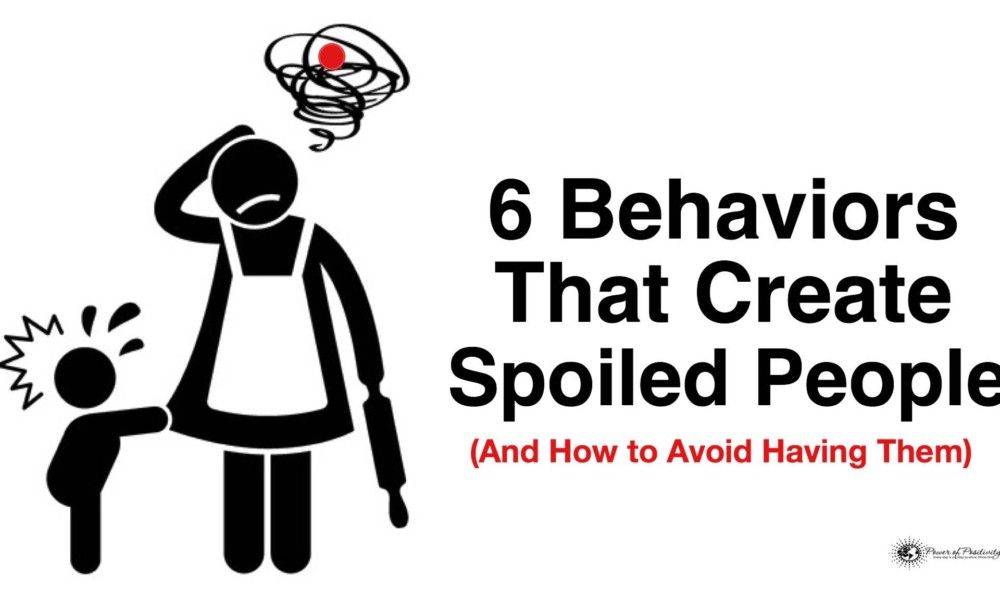 Usually such children get used to eating whatever they want at any time convenient for them. But this means that they can refuse ordinary meals in favor of a bag of chips or a chocolate bar. It is important to understand that a child takes energy from food, but if fast food and sweets are constantly supplied to him, then his health will be “undermined” from childhood.
Usually such children get used to eating whatever they want at any time convenient for them. But this means that they can refuse ordinary meals in favor of a bag of chips or a chocolate bar. It is important to understand that a child takes energy from food, but if fast food and sweets are constantly supplied to him, then his health will be “undermined” from childhood.
If a child spends a lot of time in front of the TV and computer, then this indicates parental laziness and unwillingness to take care of the baby. After all, it is always easier to seat a child at a computer game or watching a cartoon than to come up with an activity for him.
But experts generally do not recommend using a computer/TV for more than two hours a day. After all, this can seriously affect the psyche of the baby, and relations with parents will deteriorate noticeably. Of course, a sharp ban on the use of such a technique can cause anger and resentment in a child, so it is important to do it gradually, reducing screen time to a minimum.



